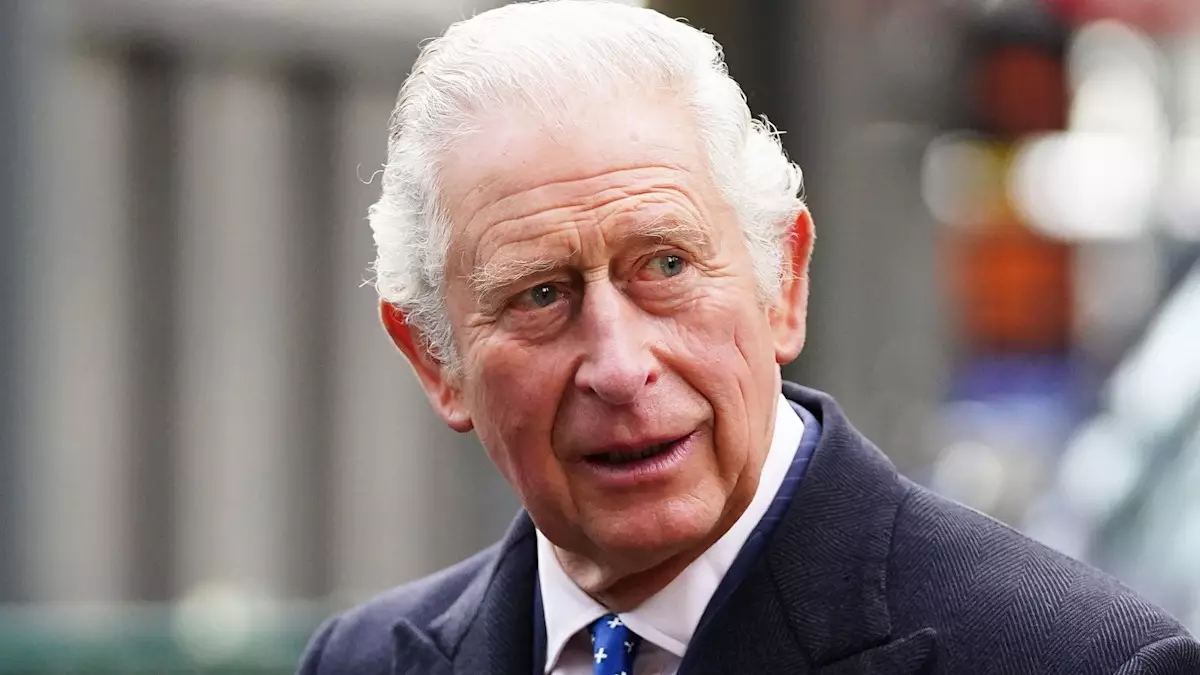The recent inquest into the untimely demise of Ian Farquhar, a close confidant of King Charles III, has brought to light not only the circumstances surrounding his death but also the rich tapestry of his life and relationships. Farquhar, who passed away in March of this year at the age of 78, was found in a distressing position—trapped between his bed and a wall, leading to asphyxiation. This tragic incident sheds light on the vulnerabilities faced by the elderly, particularly those who may be living alone or with limited mobility.
Ian Farquhar’s life was marked by service, camaraderie, and an unwavering passion for equestrian pursuits. Having served as an equerry to the Queen Mother after a distinguished military career as a Captain in the Queen’s Own Hussars, Farquhar cultivated significant relationships within the British royal family. His bond with King Charles reportedly deepened through his daughter Rose’s romantic involvement with Prince William in 2000. This connection not only highlighted his social standing but also demonstrated how personal relationships within the royal family could extend beyond titles and status.
The loss of Farquhar leaves a palpable void in King Charles’s inner circle. The deep friendship between the two men was punctuated by shared meals and discussions, indicating a connection that transcended formalities. Camilla, Queen Consort, also expressed how Ian’s presence would be sorely missed, further underscoring the personal nature of their relationships. The legacy of his friendship is not merely a mark of social interaction but a testament to the deep bonds that are forged through shared experiences and mutual respect.
Farquhar was celebrated not only for his military achievements but also for his love of the countryside and horses, as recounted by his family and friends. His daughter, Victoria, reminisced about her father’s passion for hunting and his esteemed position at Eton—a reflection of both privilege and responsibility. Ian took pride in being an equerry, embodying the protective and service-oriented ethos that comes with such a role. His dedication to the equestrian lifestyle, characterized by participation in hunts and public appearances, speaks volumes about his character; he was not just an officer but a “real countryman” as Andrew Parker Bowles later characterizes him.
The charm of his rural life is also reflected in the fact that he resided in a farmhouse on Charles’s Highgrove Estate, a symbol of his close ties to the royal household. This picturesque setting served not just as a residence but as a nurturing ground for his passions. However, it shines a light on the deeper theme of isolation that can accompany aging, a reality that became tragically evident on that fateful day.
The inquest revealed a heart-wrenching scenario—Ian was found by his caregiver, Beth Gillingham, who entered to conduct a scheduled visit. Despite her attempts to rouse him, Farquhar had already succumbed to a dire situation. The coroner, Ian Singleton, classified the incident as a misadventure, emphasizing how Ian may have accidentally fallen into a position that ultimately led to his death. This tragic occurrence serves as a poignant reminder of the fragility of life, particularly for those in their later years.
Records of care from Stuart White, his primary caregiver, illustrate how Farquhar retained a spirit of joviality despite facing periods of depression related to his declining health. The bond formed between caregiver and patient is a poignant aspect that too often goes unnoticed in discussions about elderly care. It reveals how meaningful engagement is essential not only for physical well-being but also for emotional support.
The sudden death of Ian Farquhar highlights the complex intersection of friendship, vulnerability, and the challenges of aging. As society reflects on his life and the relationships he cultivated, it is imperative to recognize the importance of support systems and the need for vigilance regarding the well-being of the elderly. While the narrative of Farquhar’s life is tinged with sorrow at his passing, it also invites a conversation about the interconnectedness of human relationships and the care we owe to those who have served life with passion and dedication. Remembering Ian Farquhar not only honors his legacy but also encourages a deeper understanding of the importance of community in preserving the dignity and care of our elders.

